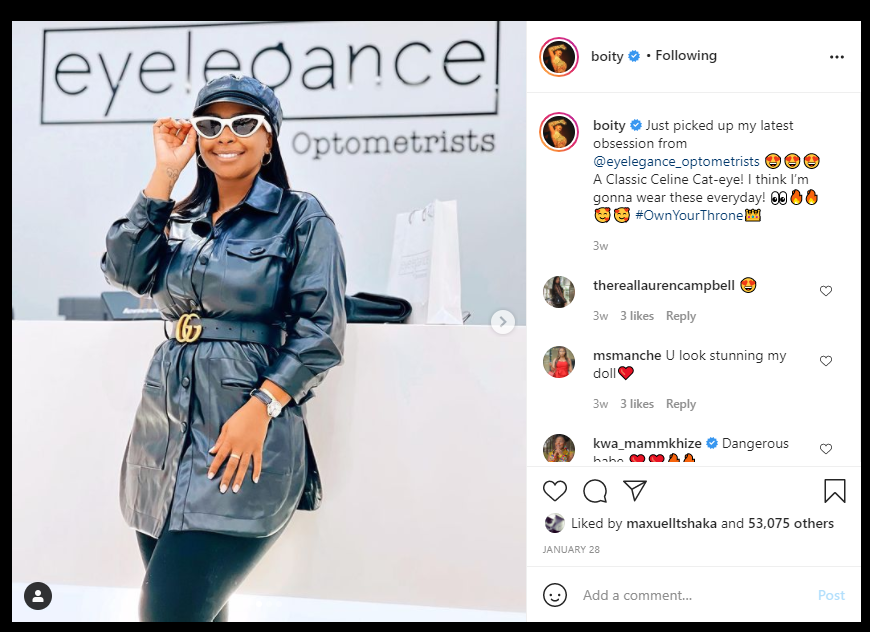Influencers are people who persuade the buying decisions of consumers through their various activities or content on social media platforms. Brands collaborate with these individuals to achieve their marketing objectives as they create trends and encourage their followers to buy products or services they endorse.
The pandemic has prompted people to isolate themselves and limit social interactions. This has resulted in most South Africans buying food, clothing, beauty products and other items online.
Considering the spike in online shopping, influencers remain relevant as they are the access point for brands to reach and persuade wide audiences. People are more likely to buy products when they see them on individuals they trust, rely on and aspire to be.
But it goes much further than that ...
Watershed moment for e-commerce in South Africa
The
Online Retail Industry in SA 2020 report reveals that online retail sales grew by around 40% during lockdown as compared to the previous year. Also, with major players in the industry like Takealot having an
increase of 4.79% to 13.17 million visits in the past six months, the country's e-commerce sector looks set for growth.
South Africans have been previously wary about online shopping until they were faced with lockdown restriction realities. This includes avoiding crowded places like supermarkets in order to prevent the spread of the virus.
This has meant that fashion or beauty consumers could not go to the shops to buy what they want because only essential goods were available. Also, standing in long queues due to the limited number of people allowed inside a store didn't make much more sense when you can just shop online from the comfort of your home.
Brands collaborate with fashion influencers on social media
Brands had to shift their strategy amid the pandemic by partnering with influencers who have garnered massive and loyal followers on social platforms.
Brands are increasingly turning to influencer marketing to sustain brand loyalty and purchase intent. This is because consumers buy products when they see them on people they admire and appear to be authentic.
Previously, most influencers would post about glamorous fashion styles and beauty products on their social media pages. But after lockdown regulations were introduced, celebrities and fashion icons switched to authentic and engaging content that reflected the human side to brands, as influencers are unfiltered at home.
For many brands, the so-called stay-at-home economy became the fundamental point during the crisis. This is because influencers captured consumers' attention by persuading them on what or where to shop, where to save money and how to entertain themselves at home. For example,
Boity Thulo, who has a large following on Instagram, has been promoting products during lockdown, which includes, fitness, Huawei services, watches, clothing and other products.
 © Instagram
© Instagram
Influencers have the ability to reach consumers on the same platforms they are using to connect, entertain and educate them. They're also able to assure consumers that they can actually get products and services that they like while they are following lockdown regulations at home.
Fashion, beauty, food and other brands have strongly pivoted from traditional advertising to influencer engagements. This is because you can easily purchase from online pictures and influencer content through social media platforms like Pinterest without even being physically in the store.
Another reason why influencers remain relevant is that now people are living in a time where it feels like life has completely changed. They almost feel desperate for content to replace the urge of feeling normal again. So, influencers sort of close that normalcy gap to keep them going as if things are the same when they see photos of their lifestyle or daily activities.
Will influencers' social content become more meaningful or aesthetic?
Before the pandemic, lifestyle and fashion influencers were more focused on content that projects perfection and flawlessness. But now consumers want content that addresses
real and
current issues faced by the country.
They are longing for material with substance and authenticity. During the quarantine, influencers didn't post many glamour shots of themselves, where they're wearing makeup in fancy backgrounds. Their content showed defects, flaws and original stories that reflected who they
really are.
SA influencers aligned their values with brands they represent as well as their consumers. This will even go beyond the appreciation of beauty and taste as more brands and influencers are increasingly making efforts to express values through words.
For example, our very own Miss Universe,
Zozibini Tunzi, joined the fight against gender-based-violence in solidarity with
1st for Women Insurance by taking part in a viral Tik Tok #MyBodyStandUp challenge.
With gender-based violence being another pandemic that needs to be nipped in the bud in SA, Tunzi showed efforts in addressing a part of the country’s growing problem. She dealt with the issue explicitly with the intention of protecting others.
Do you think influencers will remain relevant throughout the global pandemic? Let us know in the comments section below.
Have you wondered when social media influencers started making their mark and why they are increasingly becoming popular? Find out on Influencers: What's the deal?.
*Image courtesy of Vecteezy.